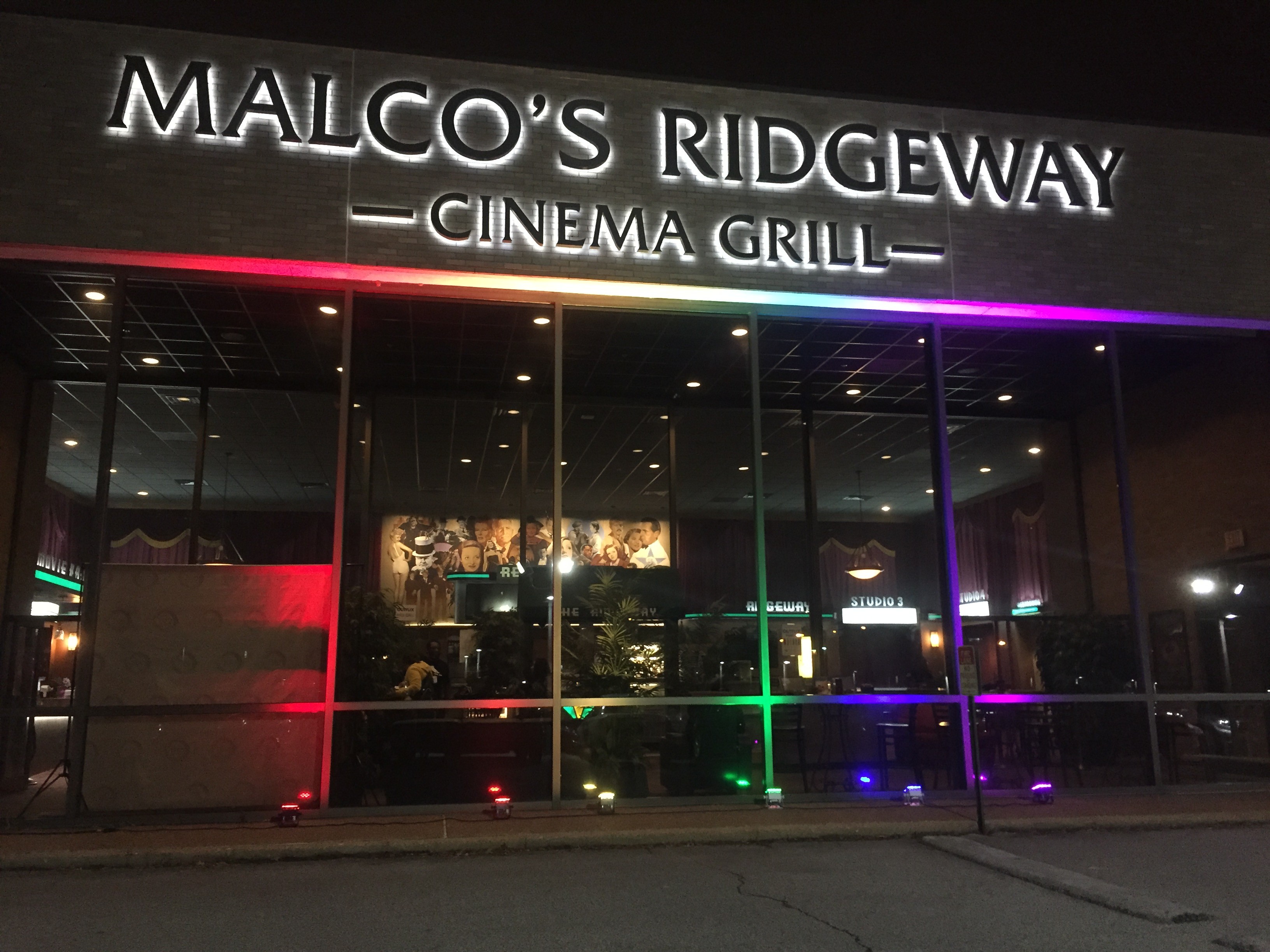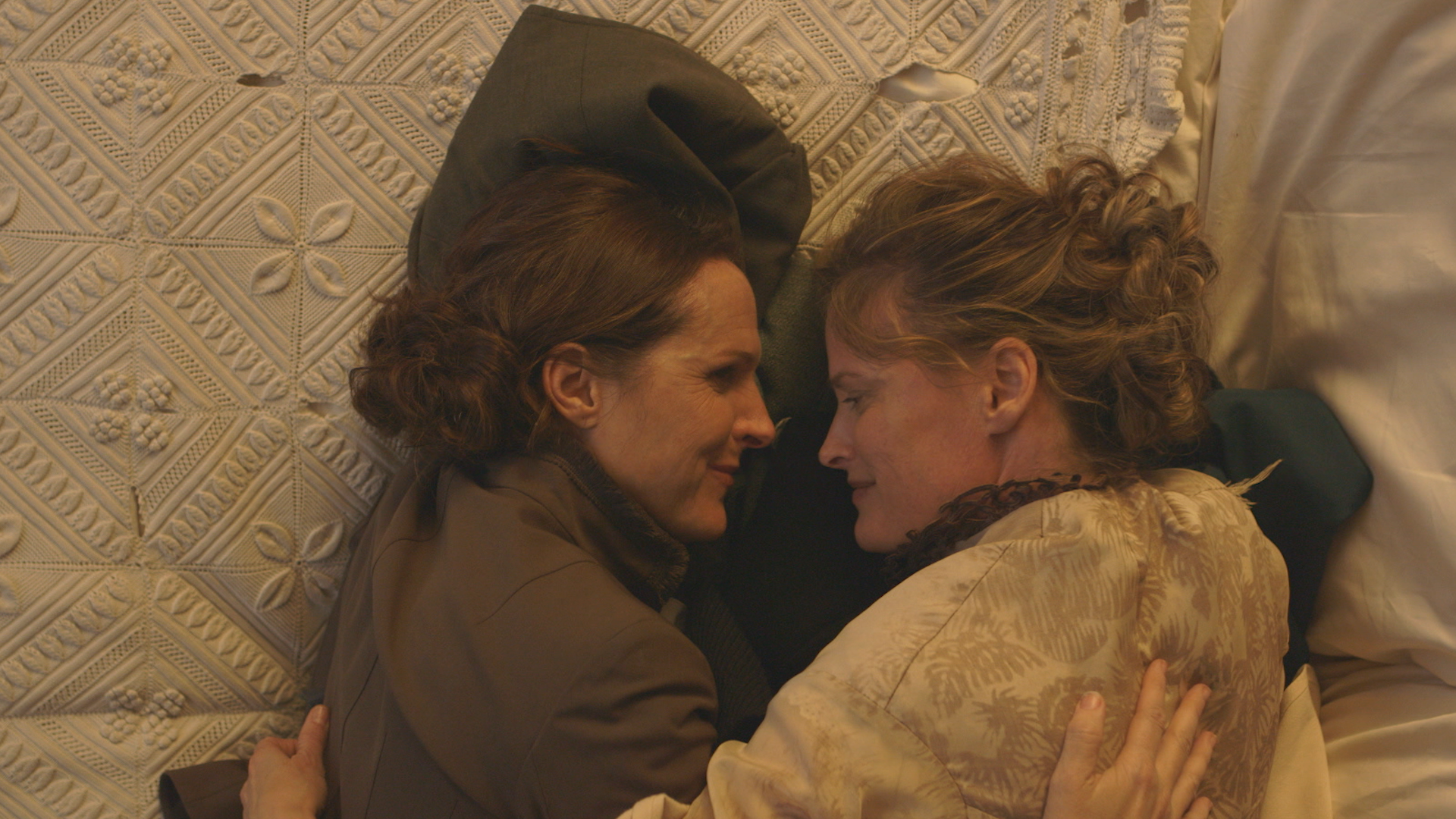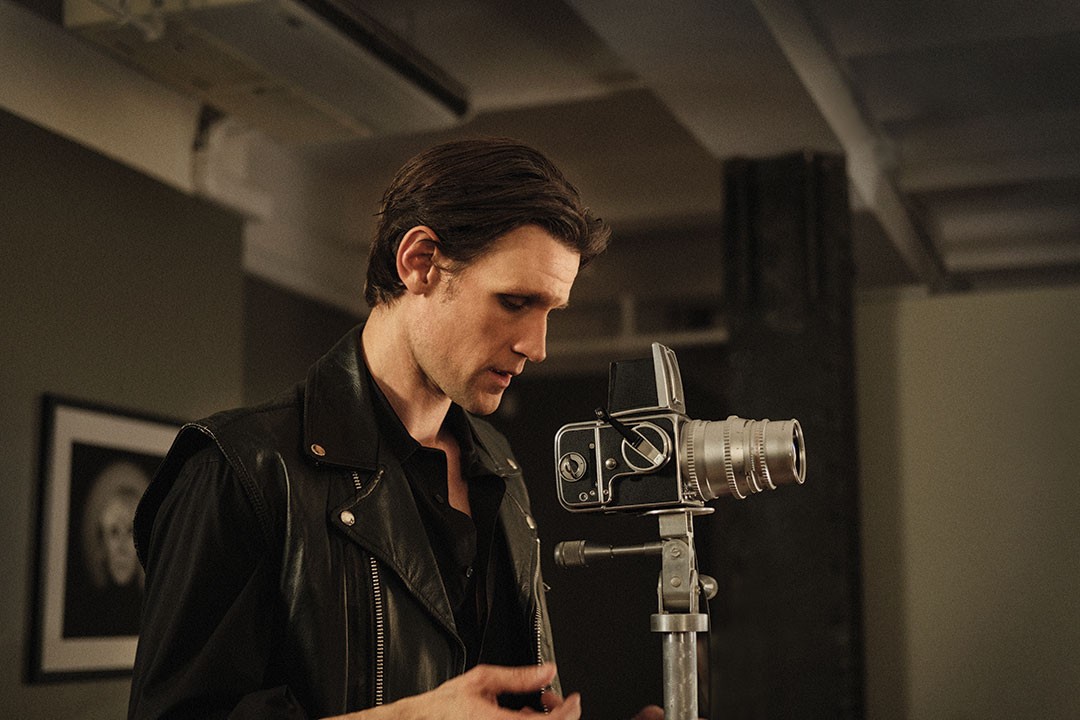This weekend the queers were out in full force for the first days of the 21st Annual Outflix Film Festival, the local LGBTQ film fest organized by OUT Memphis. As a gigging queer myself, I sadly wasn’t able to attend the whole festival, but I managed to swing by Ridgeway Cinema for a few hours of queer cinematic experience.
 Alanna Stewart
Alanna Stewart
Malco Ridgeway Cinema Grill lit up with the LBGTQ rainbow for the Outflix Film Festival.
Opening weekend at Outflix included outsider narratives, including stories about artists, performers, and yes, filmmakers. Many of the films explored the intersection of art and sexuality, where either the queer person or the artist finds themselves set adrift from mainstream society and struggles to make a place for themselves. In the two biopics I saw this weekend, Wild Nights with Emily, directed by Madeleine Olnek, and Mapplethorpe, directed by Ondi Timoner, the narratives center around an eccentric queer artist (poet Emily Dickinson and photographer Robert Mapplethorpe, respectively) who, finding themselves ostracized by their communities, devote their lives entirely to their craft and into living as authentically as they can in a world stacked against them, even though doing that means sometimes having to hide their true identities.

Molly Shannon (left) as Emily Dickinson in Wild Nights With Emily
In these films, some well-meaning little voice always chimes in, “You’re ahead of your time. Nothing like this has ever been done before. The world isn’t ready for your work. You’ll be loved when you’re dead.” But Dickinson (Molly Shannon) and Mapplethorpe (Matt Smith) didn’t have time to listen to that obnoxious little voice, and pressed on with their work. They couldn’t wait for the world to change; rather they took a role in changing it.

Matt Smith in Mapplethorpe
Like these two artists, many queer filmmakers today are making movies specifically because they haven’t seen their stories told before. Director Laura Madalinski spoke at a Q & A after Saturday’s screening of her first feature film, Two In The Bush, saying that she made a romantic comedy about queer polyamory and sex work largely because there had never been one before. Madalinski and her partner/co-writer Kelly Haas wanted a movie that they could see themselves reflected in. Madalinski remembers deciding, “We’re gonna make it ourselves! And we did!”
The film, shot in 10 days with a budget of $45k, follows in the tradition of DIY queer filmmaking, in which the process itself is centered around community and mutual support. Folks help each other out because they are passionate about their stories, and because they recognize that the project is not simply a movie, but a contribution to the greater cause of queer liberation.
In the documentary Dykes, Camera, Action! pioneering lesbian filmmakers cite their activism as the source of their artistic endeavors. They realized that in order to change the world, they had to create a new one, and film was their tool. If their voices didn’t exist in media, mainstream cis-heteronormative culture could continue to pretend that they didn’t exist. Making films explicitly about their queer identities and bodies meant that they refused to be erased; they insisted on not only being seen, but being reckoned with.
These early lesbian films broke away from traditional narrative structure because, as Su Friedrich points out, queer lives do not follow the same trajectory as heterosexual lives, and conventional formats would not do justice to their stories. Queer filmmakers experimented with new techniques as they pursued ways to share their perspective with wider audiences. That idea affected my experience of watching Wild Nights With Emily, in which queer director Madeleine Olnek repositions Emily Dickinson in a queer context, compared to Mapplethorpe, with a well-known gay artist as its subject, but a formulaic biopic structure that feels distanced and stale. Despite its subject matter being over 100 years old, Wild Nights feels incredibly personal, emotional, and surprisingly modern. The film moves non-linearly, with flashbacks and flash-forwards, lyrical vignettes of Dickinson’s poetry, and moments in which Dickinson (Molly Shannon) breaks the fourth wall by addressing the audience, letting us know that the film is aware of its function.
Whether or not the straight normie world recognizes it, queer folks have always been here. We’re everywhere. And this week we’re at Outflix.
Outflix runs through Thursday, September 13. For a full schedule and more information, visit their website.